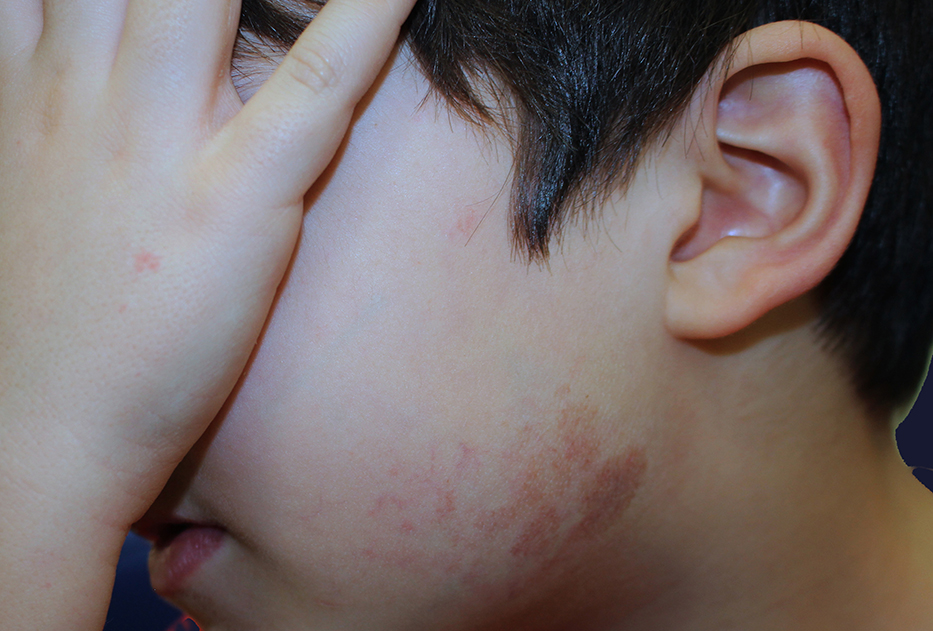Capillary malformation/arteriovenous malformation syndrome in a 6 year old child.

Downloads
DOI:
https://doi.org/10.26326/2281-9649.30.1.2081How to Cite
Abstract
The presence of at least 3 CM and one of the three criteria (cutaneous or nervous AVM, an affected parent, a mutation of RASA1 or EPHB4) makes the diagnosis of CM / AVM syndrome certain (1); we speak of CM / AVM1 or 2 according to the mutation of RASA1 or EPHB4. CM/AVM syndrome is transmitted in an autosomal dominant manner and its lesions are probably due to loss of heterozygosity (second hit). CM are small – but often there is a larger one –; they are often surrounded by an ischemic halo; under the finger pressure they show a brownish background; there may be hypo- hypertrichosis and on palpation thrills or pulsation due to skin AVM. In the wider spots there are variations of red and telangiectases reminiscent of both minimal growth hemangiomas and port-wine stain. The prevalence of CNS AVM is uncertain, but more frequent in CM / AVM1 (2) and must however be sought with MRI.
